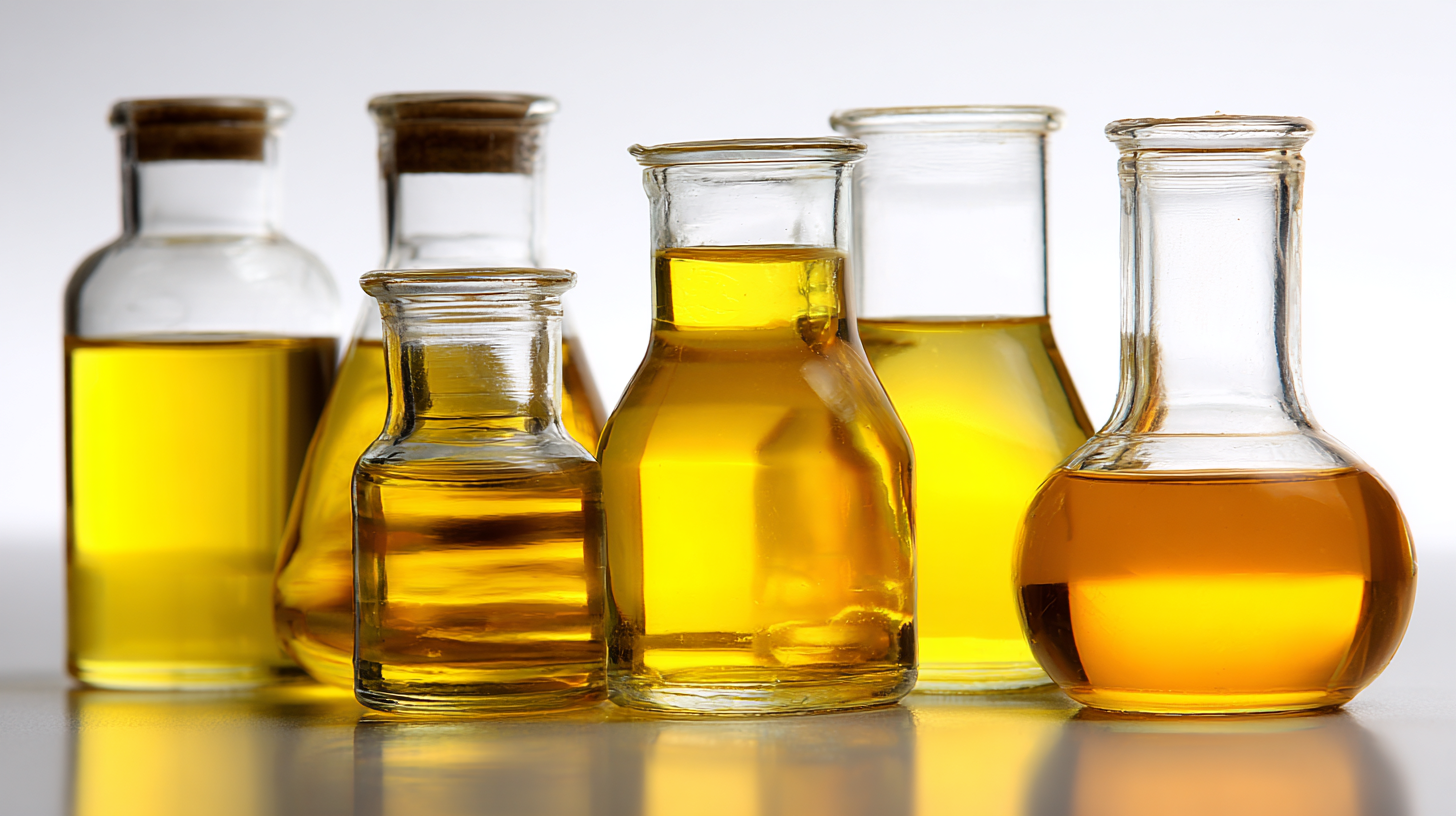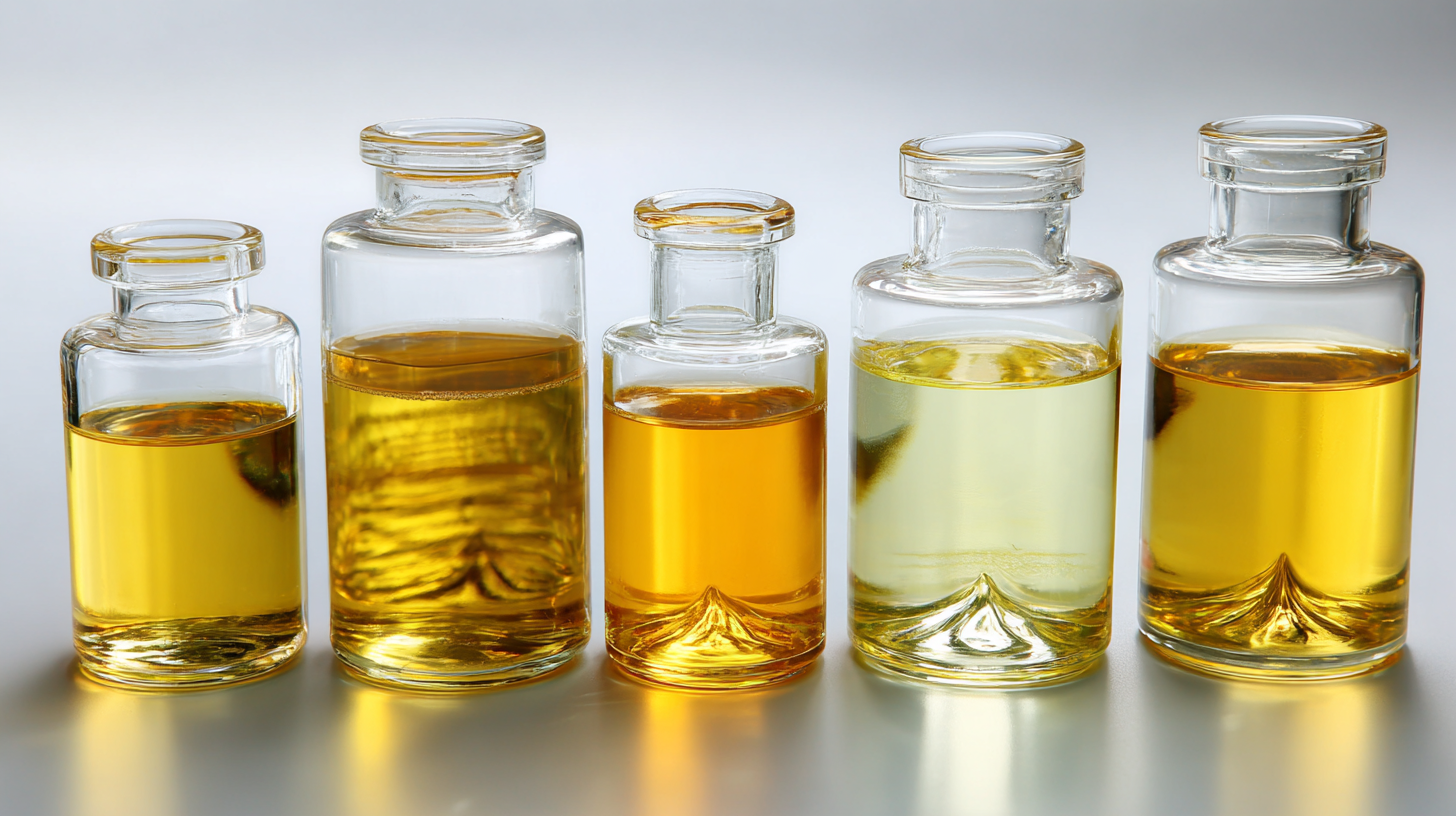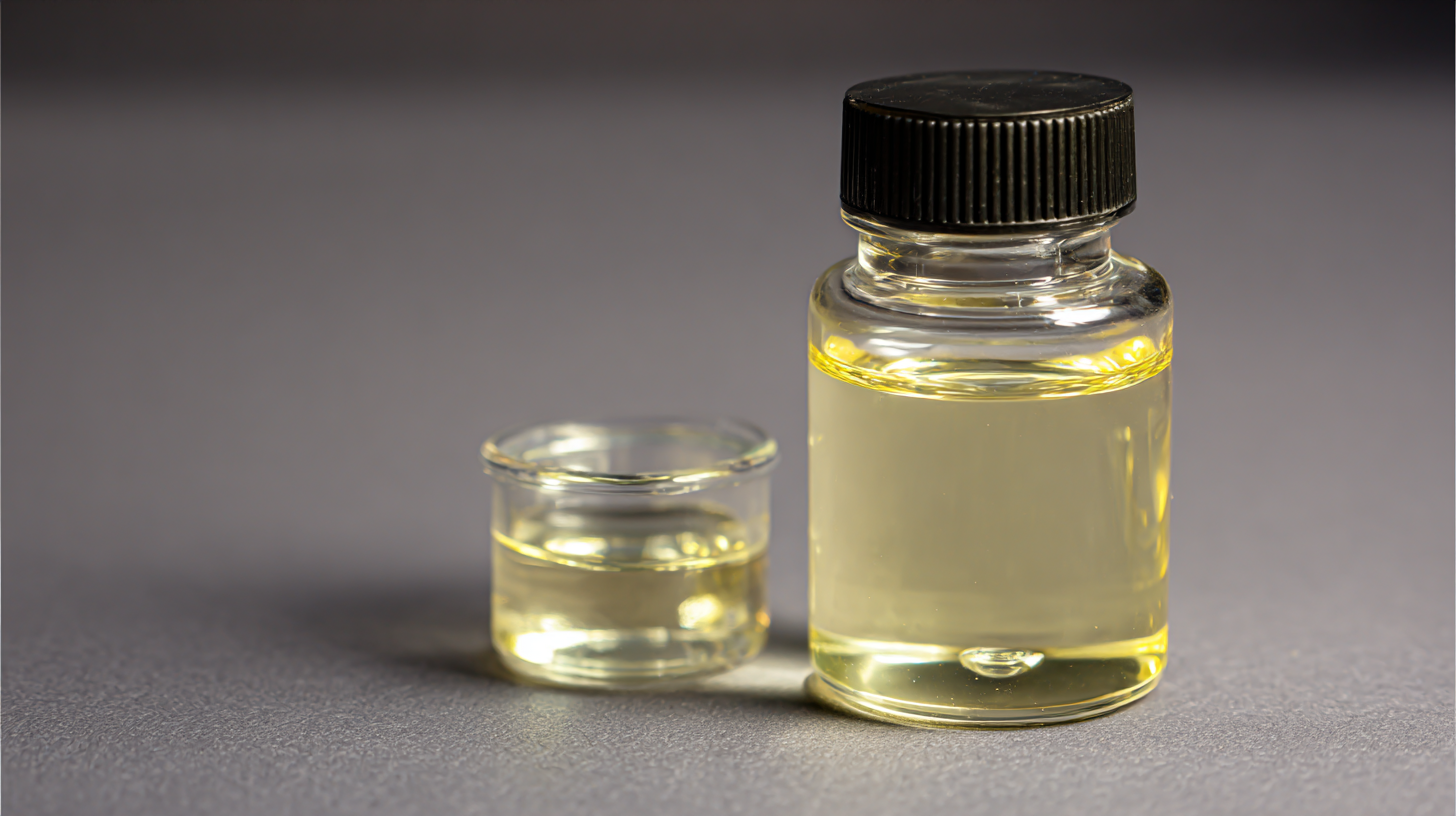How to Identify Top Quality Ethyl Oleate Manufacturers for Optimal Results
In the competitive landscape of chemical manufacturing, identifying top-quality ethyl oleate manufacturers is crucial for achieving optimal results in various applications. Ethyl oleate, a vital ester used in pharmaceuticals, cosmetics, and even food production, requires stringent adherence to industry production standards to ensure safety and efficacy. Selecting the right manufacturer is not merely about cost; it's about understanding their commitment to quality, consistency, and compliance with established regulations.

As businesses increasingly prioritize sustainable sourcing and product integrity, it becomes essential to evaluate manufacturers based on their production processes, quality assurance protocols, and certifications. This blog will delve into key strategies for discerning the best ethyl oleate manufacturers, enabling you to make informed decisions that elevate your product offerings and meet the demands of your market effectively.
Key Characteristics of High-Quality Ethyl Oleate Manufacturers to Look For
When looking for high-quality ethyl oleate manufacturers, several key characteristics can help distinguish the best in the field. First, consider the manufacturer’s reputation within the industry. Trustworthy manufacturers often have positive reviews and testimonials from previous clients, reflecting their commitment to quality and customer satisfaction. A robust online presence, including certifications and industry affiliations, is also indicative of a reliable company that adheres to regulatory standards.

Another critical aspect to evaluate is the manufacturer’s production process. High-quality manufacturers should utilize state-of-the-art technology and adhere to strict quality control measures. Transparency regarding sourcing raw materials and the ability to provide detailed product specifications can further demonstrate a commitment to quality. Additionally, look for manufacturers that invest in research and development, as this reflects their capacity for innovation and continuous improvement, which are vital for producing top-tier ethyl oleate.
Understanding the Manufacturing Process: What to Expect from Top Suppliers
When selecting ethyl oleate manufacturers, understanding the manufacturing process is crucial for ensuring product quality and consistency. Top suppliers adhere to stringent industry standards, such as those set forth by the International Organization for Standardization (ISO). According to a recent report by Grand View Research, the demand for ethyl oleate in cosmetics and pharmaceuticals is projected to grow at a CAGR of 4.8% from 2022 to 2030, highlighting the importance of sourcing from reputable manufacturers who can reliably meet this increasing demand.
High-quality ethyl oleate production involves multiple stages: sourcing raw materials, synthesizing the compound, and performing rigorous quality control tests. For instance, manufacturers should utilize high-purity oleic acid and ethanol, both of which should comply with pharmaceutical-grade specifications to ensure safety and efficacy. Additionally, an important aspect of the process is facility validation, which involves ensuring that equipment is regularly maintained and that manufacturing practices have been documented and improved upon, aligning with the principles of Good Manufacturing Practices (GMP). This commitment to quality ensures that businesses receive a product that not only meets but exceeds industry expectations.
Evaluating Certifications and Quality Standards in Ethyl Oleate Production
When sourcing ethyl oleate, understanding the certifications and quality standards of manufacturers is crucial for ensuring product efficacy and safety. According to the Specialty Chemicals Market Global Report 2022, the demand for high-purity solvents, including ethyl oleate, has surged due to their varied applications in pharmaceuticals, cosmetics, and food industries. However, the presence of contaminants can drastically affect the performance and safety profile of the final products. Therefore, it is essential for manufacturers to adhere to strict quality standards, such as ISO 9001, which ensures consistent quality management across their processes.
In addition to ISO certification, adherence to Good Manufacturing Practices (GMP) is critical for manufacturers in the ethyl oleate sector. A report by the Global Health and Safety Forum 2023 highlighted that companies complying with GMP not only achieve higher product quality but also enhance consumer trust. Furthermore, certifications like HALAL and FDA approval can significantly influence marketability, particularly for companies targeting specific consumer demographics. Buyers should evaluate these certifications rigorously to ensure that their chosen suppliers not only meet industry standards but also deliver optimal results for their applications.
How to Identify Top Quality Ethyl Oleate Manufacturers for Optimal Results - Evaluating Certifications and Quality Standards in Ethyl Oleate Production
| Manufacturer Location | Certifications | Quality Standards | Production Capacity (kg/month) | Lead Time (weeks) |
|---|---|---|---|---|
| Region A | ISO 9001, GMP | USP, EP | 5000 | 4 |
| Region B | ISO 22000, HACCP | JECFA | 8000 | 6 |
| Region C | FDA Registered, ISO 14001 | Food Grade | 6000 | 5 |
| Region D | TS 16949 | cGMP | 7500 | 3 |
Assessing Customer Reviews and Industry Reputation of Manufacturers
When searching for top-quality ethyl oleate manufacturers, assessing customer reviews and industry reputation is crucial. Customer feedback provides invaluable insights into product quality, service reliability, and overall satisfaction. Look for patterns in positive and negative reviews, as they can help you gauge a manufacturer's strengths and weaknesses. Pay particular attention to reviews on multiple platforms to ensure a well-rounded view of the manufacturer’s reputation.
Tip: Engage with other customers, either through forums or social media, to gain firsthand experiences regarding a specific manufacturer. Personal testimonies can reveal hidden aspects that official testimonials may overlook.
Furthermore, evaluate the manufacturer's standing within the industry. Established manufacturers often participate in industry workshops, trade shows, or certifications, underscoring their commitment to quality and innovation. A reputable manufacturer will often have industry affiliations or endorsements that validate their credibility.
Tip: Take the time to research any awards or recognitions a manufacturer has received, as these accolades often reflect their contributions to quality and compliance within the industry.

The Importance of Sourcing Raw Materials for Ethyl Oleate Quality Assurance
When sourcing ethyl oleate, the quality of raw materials directly influences the final product's efficacy and safety. This is especially critical in industries such as pharmaceuticals and food, where purity can significantly impact consumer health and product performance. A keen focus on sourcing raw materials from reputable suppliers ensures that manufacturers can maintain high standards for their products. Recent discussions in the industry highlight the importance of sourcing from trusted regions, with mentions of sourcing materials from areas like Haryana and UP, known for their quality outputs.
Moreover, advanced characterization methods, such as HPLC-MS, play a crucial role in ensuring that the raw materials meet the necessary specifications. These techniques allow manufacturers to analyze components in their formulations effectively, verifying that surfactants like sorbitan oleate used in emulsified products maintain the required standards. The rigorous testing not only assures product quality but also builds consumer trust, making it essential for manufacturers to prioritize quality assurance in their raw material sourcing strategies.





